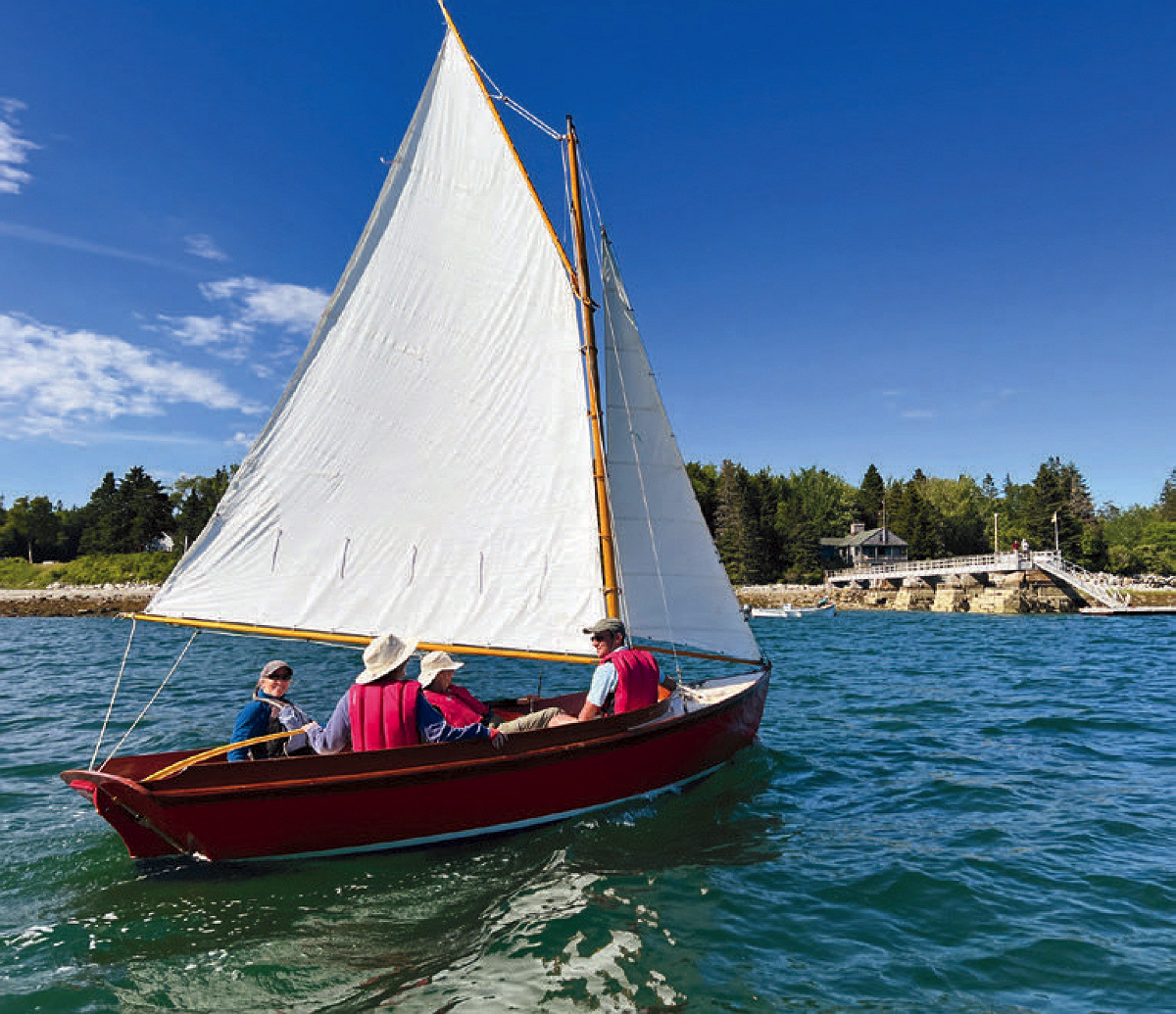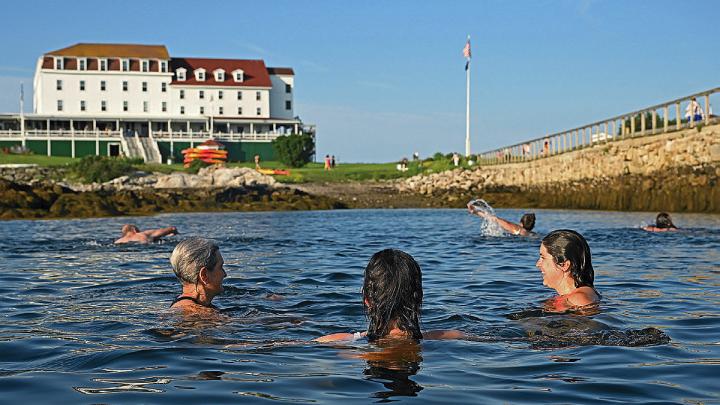Yearning to learn something new or dive deeper into a hobby? Want to escape pressures at work and quotidian tasks that can wear you down? Envious of your kids’ or grandkids’ camp vacations? Take heart: adults, too, can benefit from the freedom and fun inherent in New England’s summers.
Many organizations offer adult camps focusing on music, dance, and art or intellectual gatherings and outdoor adventures. Workshops and classes are taught amid bucolic settings where recreation (including swimming, boating, and hiking) and relaxation are integral to the experience of “getting away.” For many, these camps can offer the chance to reconnect with what matters most. “It’s important because, looking broadly, life only lasts so long,” says Bill Knox ’93, registrar for Star Island, in New Hampshire, “and if you don’t take these opportunities to separate from what you do every day, not just physically, but culturally and spiritually, you’re not going to get the chance to broaden your scope of perception.”
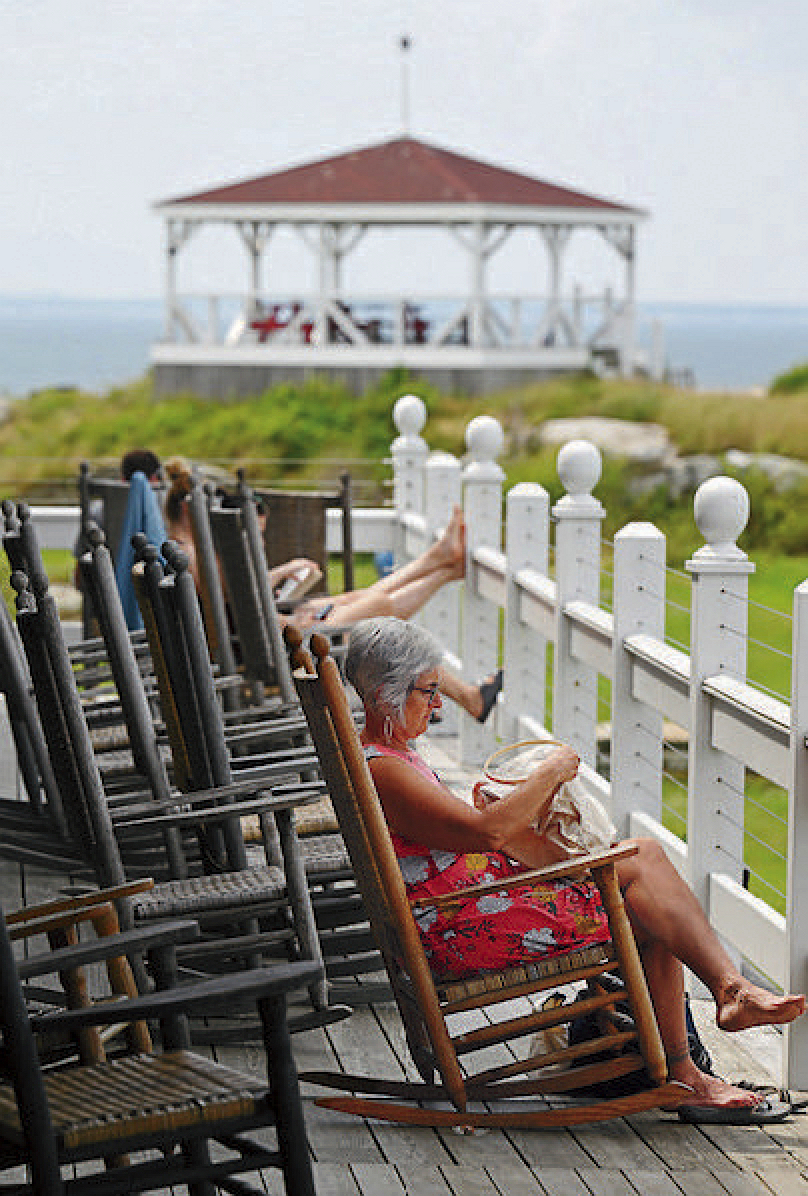
Star Island is among the nine Isles of Shoals. For more than a century, people have gathered on the 46-acre site, enamored of its history and natural beauty; from almost anywhere you stand, ocean views stretch across the horizon. A strong sense of community prevails, fostered by family-style meals and homey lodgings in the grand Oceanic Hotel, with its wraparound porches and plenty of rocking chairs. Programs (called “conferences”) run from mid-June to mid-September, covering topics from art and culture, ecology, and physical wellness to religion and spirituality. The mission of the nonprofit Star Island Corporation, which owns and manages the island, is rooted in the values of the Unitarian Universalist Association and the United Church of Christ. But “this is not a religious camp,” says Knox, who began coming to conferences in 2010; guests are welcome to participate in chapel services, for example—or not. In all, the programs are meant to inspire new, or renewed, reflection. “Diving into something different, to engage in a more spiritual aspect of something, whatever you do here,” Knox says, “the idea is to take what you learn back to the mainland.”
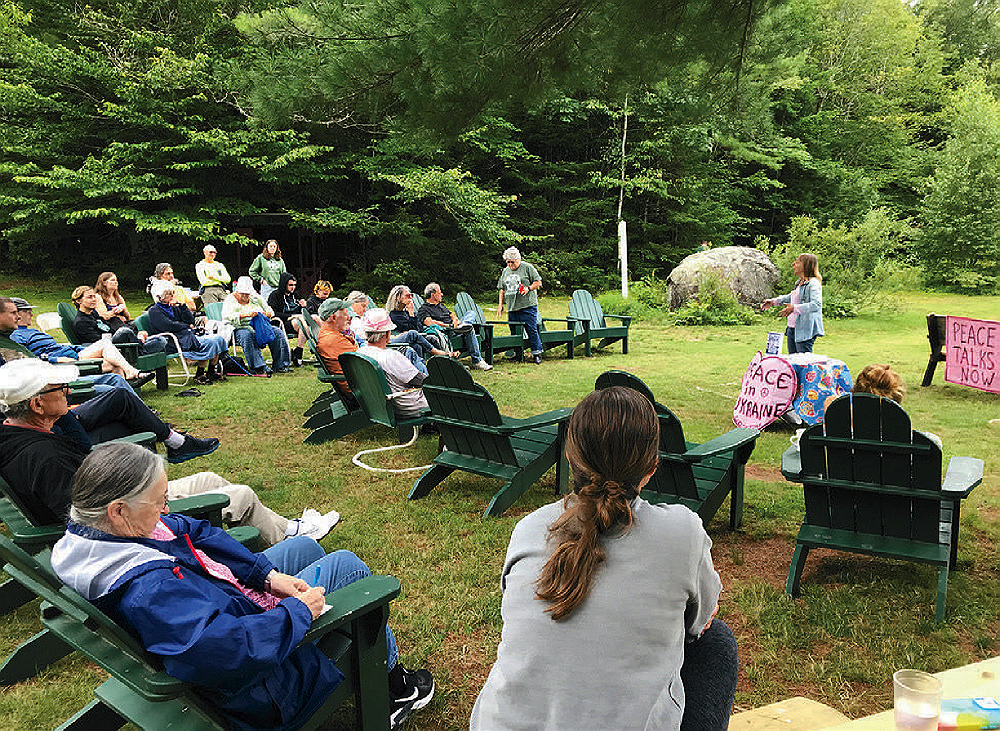
In northern New Hampshire, near the White Mountain National Forest, the secular World Fellowship Center offers collegial gatherings along with swimming, boating, and hiking, on its 460-acre site with trails and shoreline on Whitton Pond. “It’s a social-justice-focused camp, where people who are generally progressive and sometimes branded as radicals have tended to congregate to talk about progressive issues and peace,” says co-executive director Megan Chapman. In any given week, three to five speakers address issues like the war in Ukraine, housing and labor rights, and criminal justice reforms; 2024 programs will be listed on the website in March. These events are mixed in with cultural and outdoor activities, like a week of singing or a weekend of ukulele lessons. (Lodging and meals range from $72 to $182 per adult per night and, Chapman notes that all bathrooms are shared.)
Summer is also a prime time to sink into the arts. For traditional/folk music and dance, head to Pinewoods Camp, in Plymouth, Massachusetts. The charming, homespun venue, where some cabins overlook a pond, hosts 15 camp sessions this season, led by nonprofits like the Folk Arts Center of New England and the Country Dance and Song Society. “These organizations are stewards of continuing different kinds of dance, like Scottish and English country styles, contra, and even a lot of Eastern European dancing,” says Pinewoods executive director Chris Jacobs. Founded in 1919 by philanthropist and early Girl Scout supporter Helen Osborne Storrow, Pinewoods has retained its historic campus of cabins and a central dining hall, with open-air dance pavilions. “The easiest way to understand Pinewoods is, it’s the Poconos meets Plymouth,” says Jacobs, “and instead of Dirty Dancing, we’re focused on folk and traditional music and dance. And instead of fancy, it’s rustic.” The acreage is adjacent to conservation land, with trails that crisscross the woods and ultimately connect to Myles Standish State Forest.
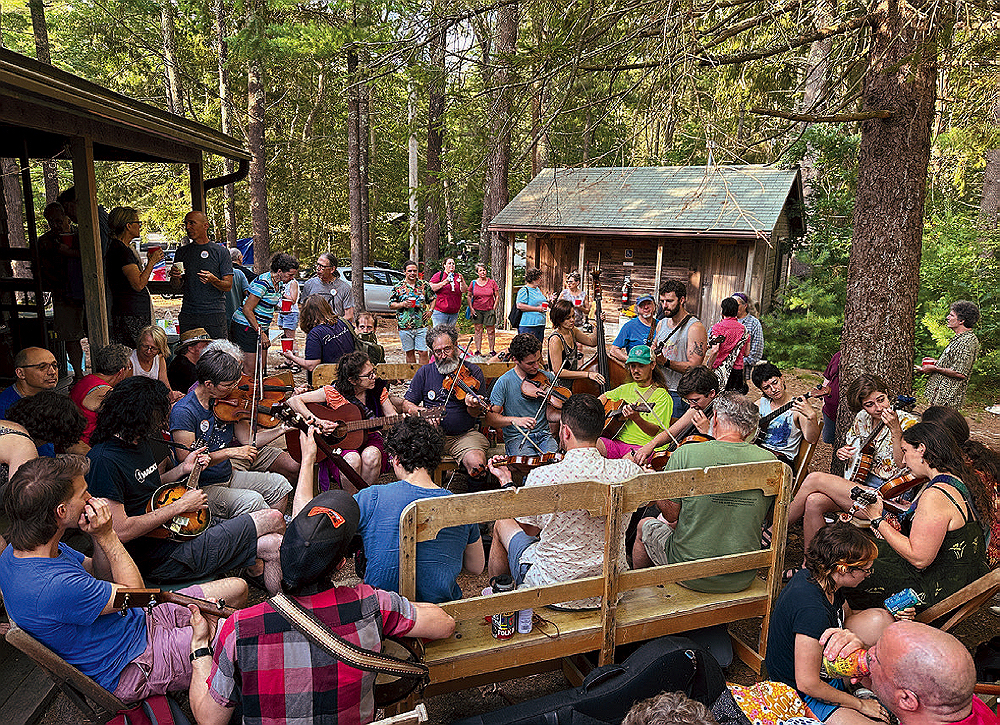
In addition to the dance programming—all participatory, with formal teaching of steps, along with impromptu singing, dancing, and jam sessions—there’s swimming, boating, and homemade meals surrounded by nature. “It’s a magical place,” says longtime camper Tom Kruskal ’68. “A combination of the social dancing and singing activities and this beautiful spot makes it an incredibly memorable experience for people who keep coming back.” He’s been folk-dancing since before his Harvard days and has played a critical role at Pinewoods for decades. Sessions run from three to seven days, with a range of lodgings from single-bed cabins to doubles to old hunting lodges that sleep 9 to 11 people. Pinewoods can house nearly 150 people, who share meals and bathrooms on a walkable campus. This closeness and sense of camaraderie foster a sense of welcome retreat from the world, even for newcomers. “The place is not very bureaucratic—it’s pretty open,” Kruskal points out. “People go skinny dipping at night in the pond. There’s a feeling of freedom and relaxation.”
That spirit also pervades a completely different kind of camp operated by Dance New England in the southwestern Massachusetts town of Tolland. Dance workshops include contact improv, African, salsa, swing, and exploratory modes of movement like Biodanza (a system of music and collective dance that deepens self-awareness). Also on tap are yoga and meditation sessions along with teacher-led events focused on creativity and relationship-building. Nightly freestyle barefoot “boogies,” with live music or seasoned DJs, can go until 4 a.m.—but plenty of traditional daytime camp activities abound, like swimming, sports and games, and arts and crafts. All ages are welcome at Dance Camp; a robust children’s and teen program frees adults to participate in the workshops. Music-making is a big feature, too, with ad hoc and organized sessions.
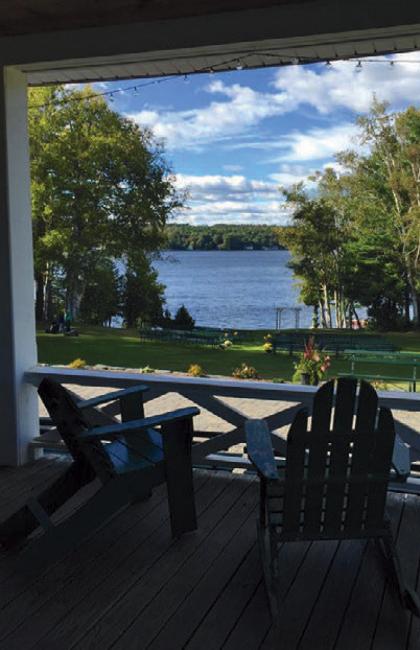
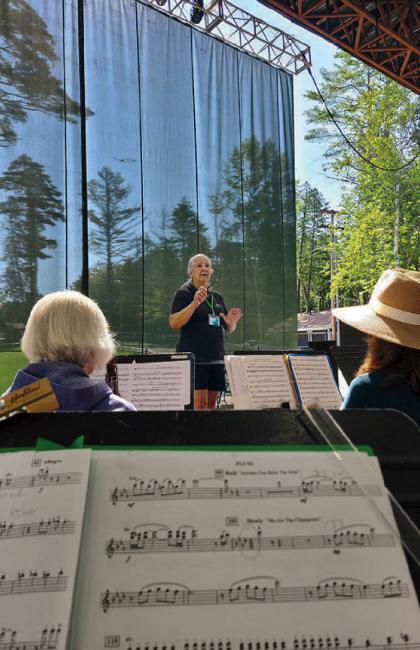
Amateur musicians—or those returning to instruments—might enjoy the week-long New England Adult Music Camp on the shores of Snow Pond in Sidney, Maine. The concert band sessions (wind and percussion instruments) follow a “your best is good enough, it’s never too late” philosophy, says co-director Nina Andersen. Along with playing music, sessions might offer a sampling of “jazz and chamber music, some musical education around theory and pedagogy on different instruments,” she adds. “It’s an intense schedule, starting with arrival on Sunday, with music happening morning to night.” ($600-$1500 for the week)
For singers, the Vermont-based Village Harmony organization offers a variety of traditional choral music camps at locations across the United States, including two residential adult sessions this season, in Hawley, Massachusetts, and Westminster, Vermont. These are non-audition, inclusive programs—but intensive learning environments that often culminate in performances. ($700-$900)
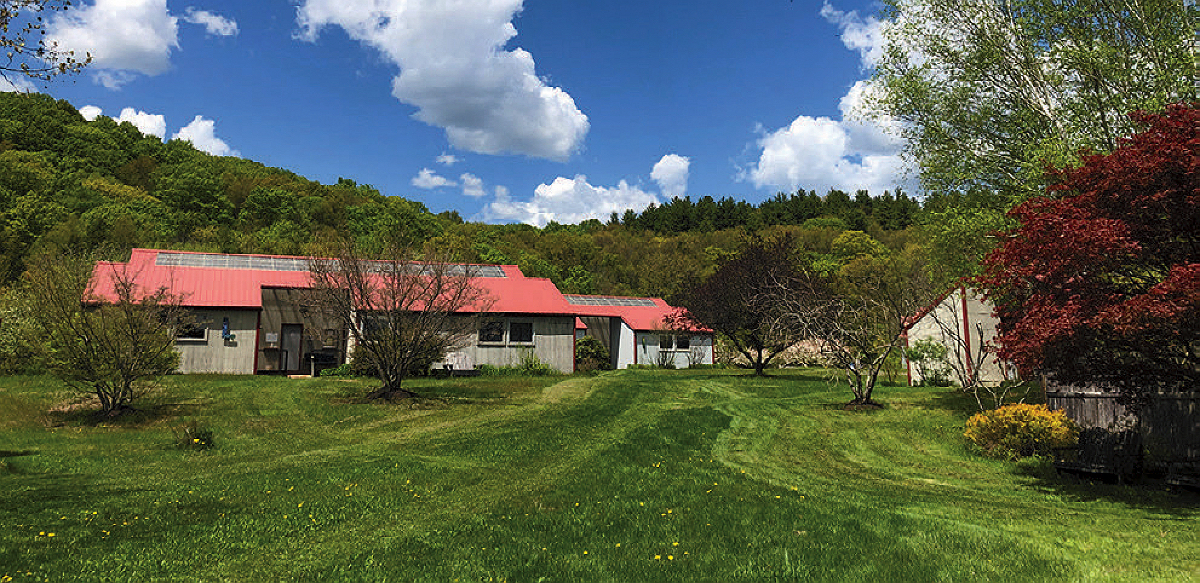
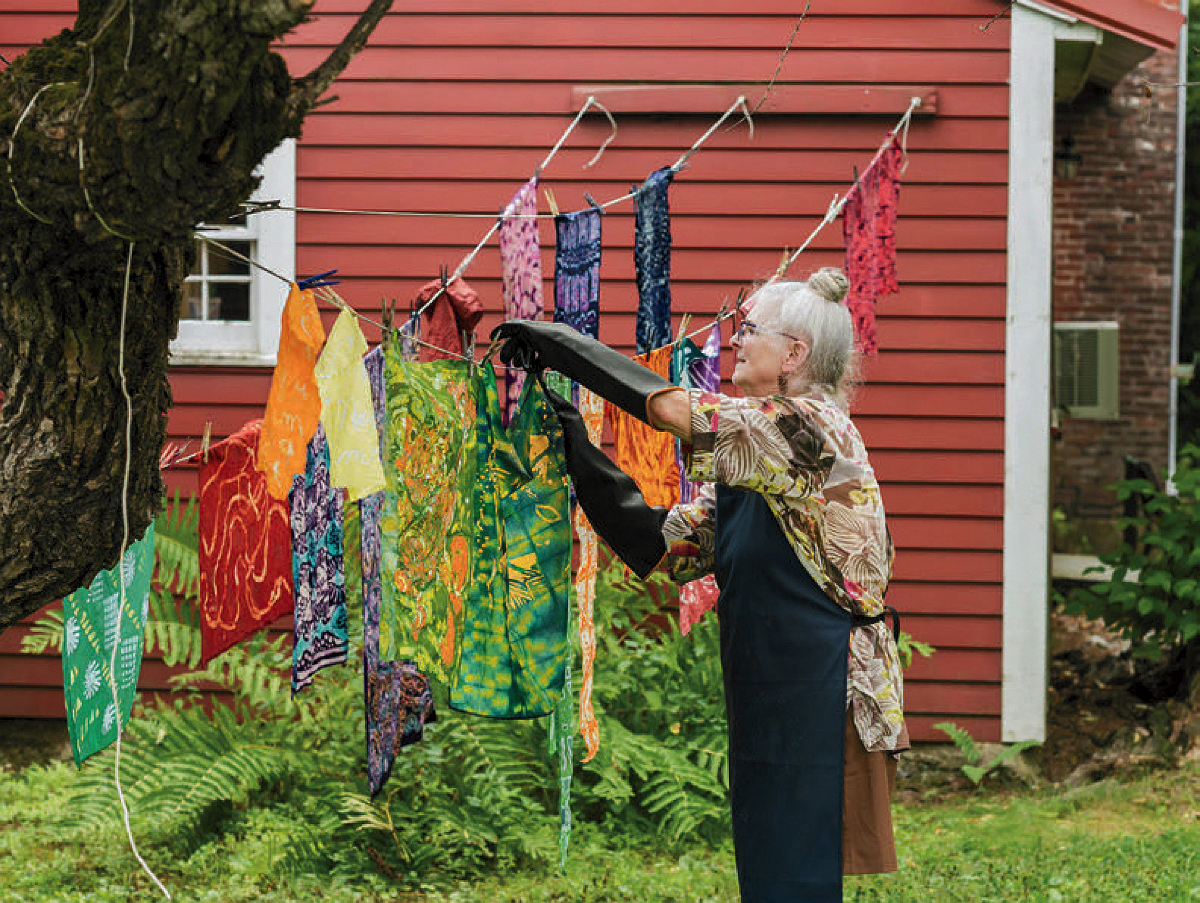
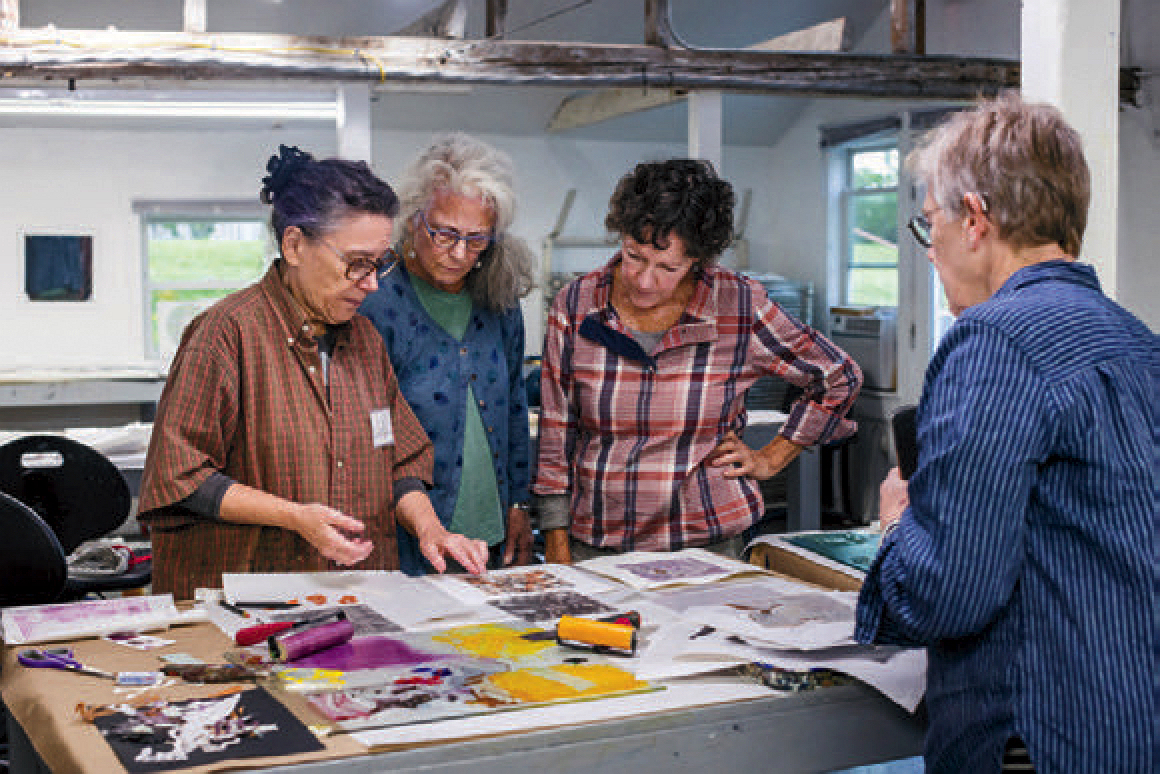
For making art, Snow Farm: The New England Craft Program, in Williamsburg, Massachusetts, offers a retreat-like campus where craftsmanship is celebrated. Hundreds of courses are offered from April through October, covering seven topic areas: mixed media/painting, ceramics, mosaics, glass, jewelry and metalworking, fiber/textiles, and woodworking. Classes run from two days to a week, with 8 to 12 people, and are generally geared to all skill levels, although some are more advanced and require prerequisites. (Workshops range from $390 to $750; a standard room with meals is $424 for two nights and $1,060 for five nights.) Located on the rise of a country road, the school’s administrative office is in one of the town’s oldest farmhouses, and the studios have a barn-like feel with natural light and a plethora of open-air working space. A big, sunny communal dining hall (adjacent to simply furnished dorms and shared bathrooms) also brings artists together for meals. “You know, we want the full experience to be nourishing,” says Oram. “The landscape nourishes, the creativity nourishes, the collaboration nourishes. It’s just meant to be a fully uplifting learning experience.”
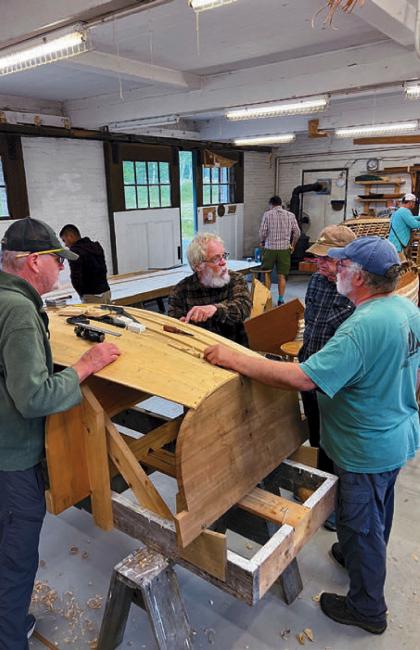
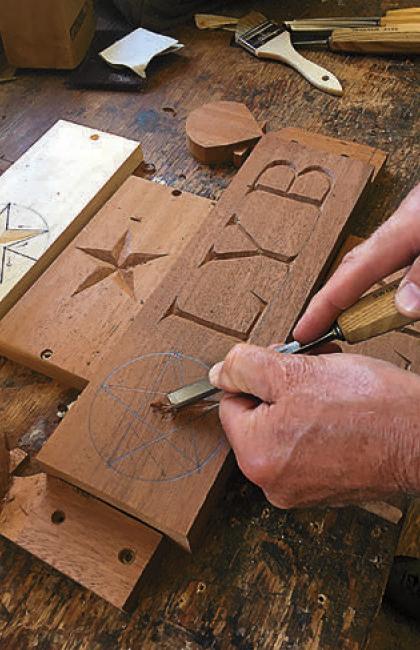
The Shelburne Craft School, in Shelburne, Vermont, and Haystack Mountain School of Crafts, in Deer Isle, Maine, are other worthwhile summer art education centers. But for ambitious, larger-scale woodworking projects—like furniture making, home construction, and boatbuilding—check out several other options. The Shelter Institute, in Woolwich, Maine, runs one- to three-week courses in post and beam construction. Near Montpelier, Vermont, Yestermorrow Design/Build School offers year-round classes in everything from basic carpentry and solar installation to creating sustainable treehouses. The Heartwood School, in southeastern New Hampshire, specializes in timber frame construction.
